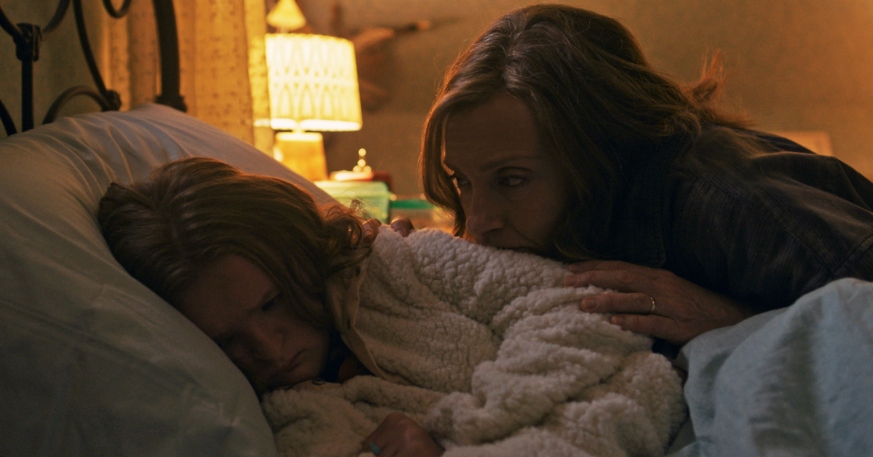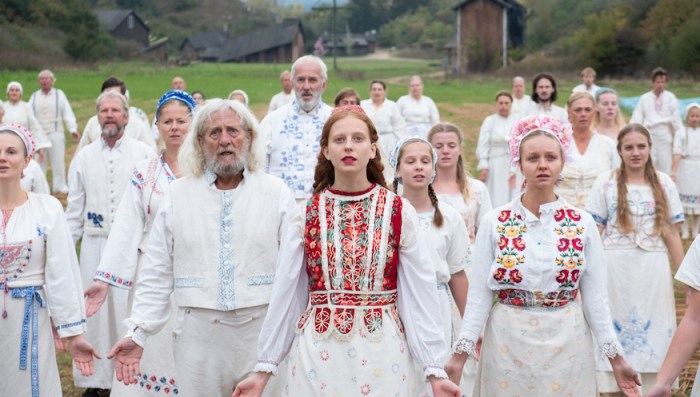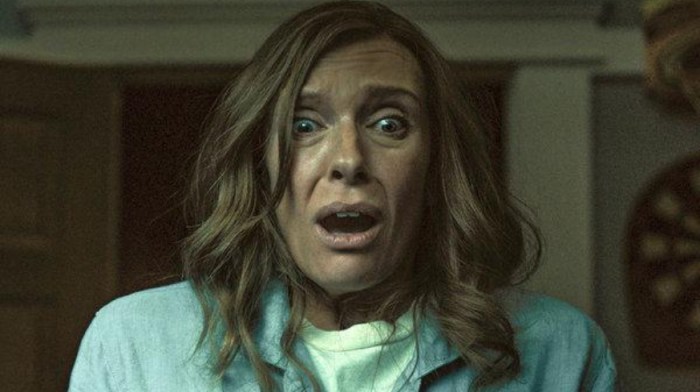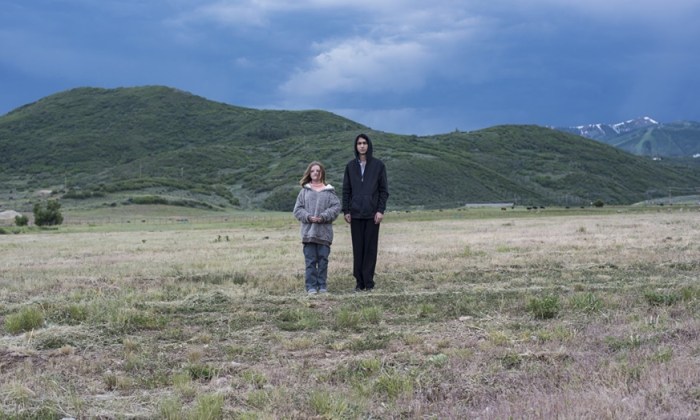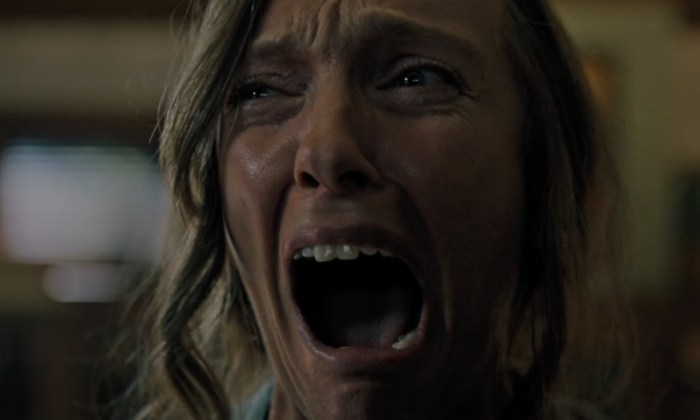WARNING: There are huge SPOILERS ahead for Hereditary. So if you haven’t seen Ari Aster’s superbly terrifying supernatural horror yet then please don’t read ahead. Bookmark the article, watch the film, then return to see what he has to say.
Ari Aster is well aware that “Hereditary” isn’t going to satisfy every viewer.
And while that might be true, there are at least two moments in the film that everyone watching will have be shocked by. The first moment occurs about 30 minutes into the film and involves Alex Wolff’s Peter and his sister Charlie, played by Molly Shapiro.
During my recent discussion with writer and director Ari Aster I quizzed the filmmaker about this scene, and he was more than happy to open up about it.
“That is a very blunt and sudden moment. It’s not gory but it is visceral in its impact.”
A few minutes later, but the morning after in the film, there’s a certain shot that is arguably the most unsettling in “Hereditary,” which Aster fought strongly for. “That’s kind of an extreme thing to do for a film that is supposedly restrained. It was something that I knew we had to do when I was writing it. A lot of people said to me, ‘Do you really want to do this? Are you sure? That might be too much’.”
“But you are just going on your instinct and judgement. I was like, ‘I think this is necessary because this is what the family is going to be wrestling with for the entire film. They’re going to be wrestling with that image. And we need to have the image that is torturing them.’”
“’We need to see it in the light of day. In a way that is in our face and harsh and loud because that needs to hang over the rest of the film. Especially when the film does become quiet and we do become marooned with this family’.”
I then pointed out just how restrained “Hereditary” felt to me in places, which Aster took as a compliment, even though he was trying to do the opposite at times.
“All a director does is talk to people all day and try to give people the right food to do their jobs. Ultimately a director only has his or her judgment to lead on. It is funny that because I actually see this film as a pretty loud and extreme film.”
“But I also know that my taste veers to more restrained work. I really don’t like gratuitous violence. And unmotivated camera movement. I don’t like flashy editing techniques. I am really bothered by empty style.”
“I am always happy when people say that they see more restraint in the film. If anything I was gearing towards trying to do something operatic and heightened and big.”
“Hereditary” is at its biggest in its dark, twisted and beguiling conclusion, which Aster also provided more light on.
“When I pitched the film I was pitching it as a family tragedy that curdles into a nightmare. And so the movie does adopt a nightmare logic by the end.”
“The ambition was to navigate people that are handling such extreme emotions that they ultimately just can’t handle anymore. I wanted the film to collapse under the weight of what these people are carrying. And then just go crazy.”
“But at the same time the same metaphors are at play. We have a boy who ultimately becomes a vessel for this demon. But at the same time the theme of trauma utterly transforming a person is still at play. But he is also literally a demon.”
“So I am hoping that the film is satisfying as a genre film, while hopefully being rich in metaphor from beginning to end. It is such a hard line to walk.”
“And so many people are going to be disappointed with where it goes, so many people are going to like where it goes but wish it got there faster. “
“But ultimately with genre filmmaking you just have to make the film that you want to see.”

